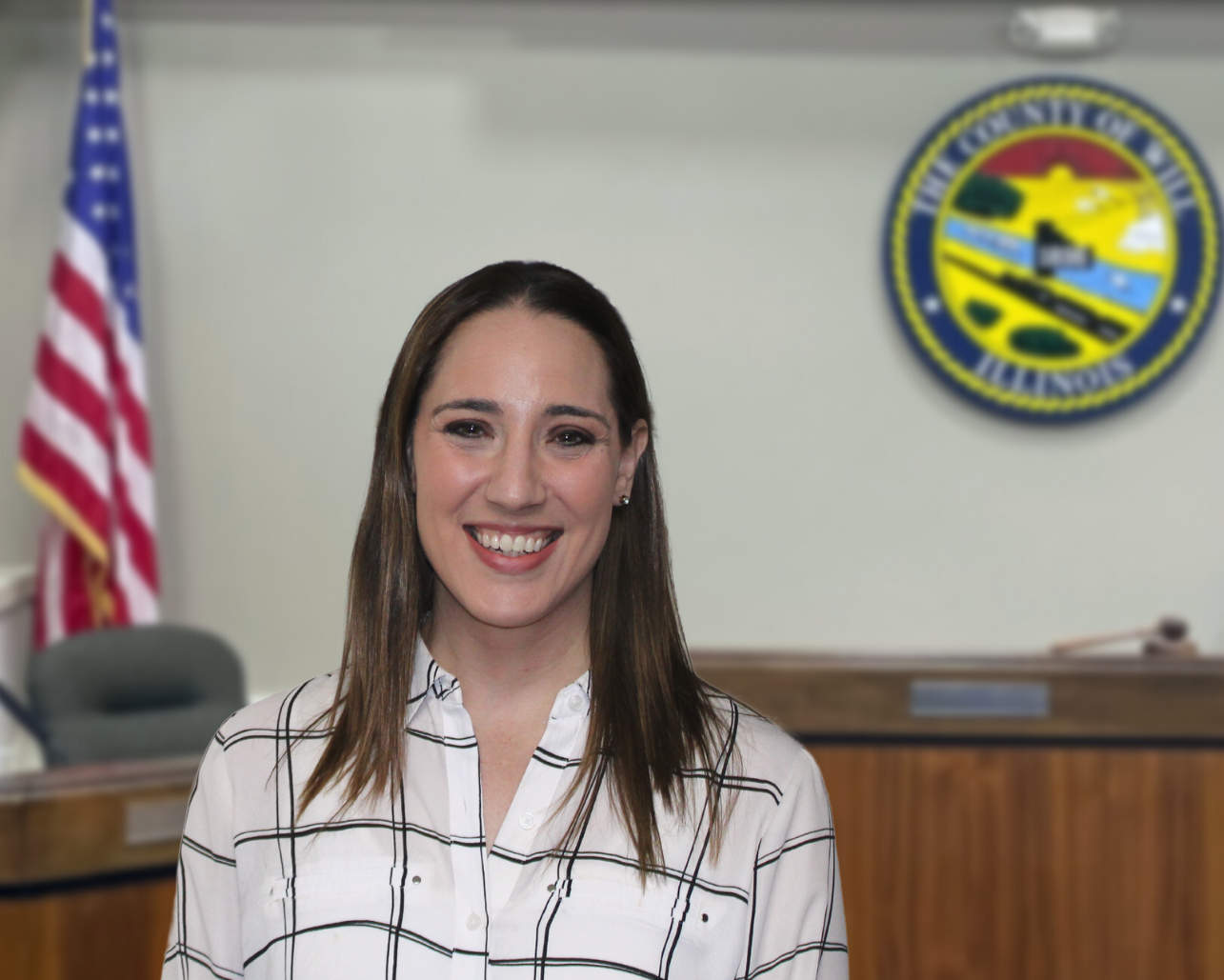Allison Anderson, ’08, Turns Scars Into Preparedness as Director of Will County Emergency Management
By Eva Richards
 Allison Anderson, '08, works to ensure Will County is prepared for any emergency that comes up.
Allison Anderson, '08, works to ensure Will County is prepared for any emergency that comes up.While Allison Anderson, ’08, never wanted or expected to go through the events on NIU’s DeKalb campus on Feb. 14, 2008, the school shooting that day has forever impacted her, molding her into the person she is today.
“I was in DuSable Hall at the time of the shooting. I witnessed fellow classmates bleeding on the floor. I couldn’t reach my parents or loved ones to tell them I was okay or that I didn’t know if I was coming home,” she said. “These are scars that I use on a daily basis to encourage law enforcement to take action immediately during an active threat situation.”
After working through some of the pain of that day, Anderson decided to try to use its lessons for good.
“I didn’t know about emergency management as a profession until after the shooting,” she said. “There was an internship on the NIU job board, and I applied. I figured I would give this opportunity a chance because I didn’t know what I didn’t know and maybe this was something I would like or learn I didn’t like.”
In her internship role with the Village of Oak Lawn, Illinois, she immediately fell in love with the profession, realizing she could help people in their worst of times.
“I feel that because of my experience, I can empathize with people as they are going through their traumas of a disaster,” Anderson said.
Growing up in Naperville, Illinois, Anderson never had a specific interest in one career, but she knew she wanted to help people.
“I went to NIU because both of my parents went to NIU and met there. It was also close to home but far enough away that if I needed something I could always go home,” she said.
After earning a double bachelor’s degree in psychology and sociology, Anderson decided to pursue a career in emergency management, beginning as an emergency management assistant for the Village of Oak Lawn, Illinois, and then moving to a similar role at the DuPage County Health Department. Next, she began working her way up in emergency management roles in Will County, Illinois. In March, she was promoted to director of Will County’s Emergency Management Agency.
“Most of the daily work is coordinating with stakeholders and creating new ways to keep the public informed of emergencies or disasters,” she said.
Anderson finds this work fulfilling because she understands the important of preparing for emergencies before they happen.
“As a society, we tend to focus on the positives, the exciting times in our lives. We are often never prepared for the worst times—a tornado or flood that destroys our home with all our memories or an active threat situation where lives are lost in a moment’s notice,” she said. “It is my job to coordinate with stakeholders so when those awful days occur, we can make the process easier to navigate for our citizens.”
Anderson notes that she and her team, as well as emergency agencies around the world, are challenged each day by more complex disasters.
“For example, we are seeing wildfires in parts of the country that have historically never seen wildfires," she said. "Our flash floods are destroying more infrastructure than ever before. We are seeing stronger and stronger tornadoes with more injuries and fatalities. Then, you add in events like cyber issues or dam failures, and the disaster becomes overwhelming.”
While Anderson admits we may not be able to stop these events from occurring, she knows we can take steps to reduce the impact.
“We can bring communities together to build back stronger and healthier than ever before,” she said.
Undoubtedly, Anderson’s time at NIU shaped her future in ways she never imagined, and she credits her psychology and sociology education for preparing her to see the human side of disasters.
“I was a sociology and psychology major, which is not common in this field. Many others have emergency management or criminal justice-type degrees,” she said. “I feel that, because I’ve been taught to see the individual and the group, I am better equipped to anticipate behavior during a disaster or emergency and, therefore, be prepared to understand our population better.”
